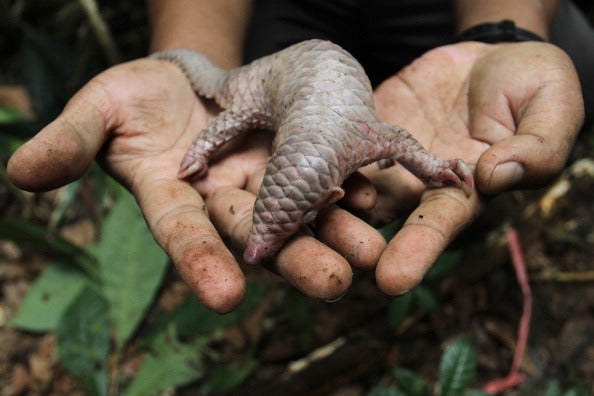ZSL London Zoo under fire for advertising job vacancy seeking ‘unpaid intern with a Masters degree’
Zoo says it has ‘limited grant funding’ after journalist emails complaint to say London is ‘a very expensive city’ at a time when ‘the cost of living is so high’

ZSL London Zoo has come under fire for advertising a vacancy for a highly-qualified university graduate to help run a global conservation project for six months - for no pay.
Candidates, states the job ad, should have an ‘undergraduate or Masters level degree’ and, beginning later this month, will only receive ‘up to £5 per volunteering day for lunch’ as well as reimbursement for travel costs ‘up to the maximum equivalent of a weekly zone 1-6 travel card’.
The vacancy was brought to attention by an anonymous and ‘disheartened’ reader of the careers advice site Graduate Fog. The site said: “While the London Zoo’s dedication to animal welfare is commendable, the same cannot be said for its commitment to the welfare of its own junior staff. “
Founder of Graduate Fog and journalist Tanya de Grunwald emailed London Zoo to ask for justification regarding the unpaid position. She wrote: “As you’re no doubt aware, London is a very expensive city, and it is surely unreasonable to ask anybody to work for free when the cost of living is so high.
“In not paying wages for this role, you are also ensuring that it is out of reach to all but those whose family have the financial means to support them living in London for six months without earning.”
The zoo’s HR department replied to Grunwald to reiterate its stance on lunch and travel cost reimbursement and said: “We ensure that voluntary opportunities offer valuable experience and personal development, with many former placements leading to conservation careers at ZSL or other leading NGOs.”
Unimpressed by HR’s ‘dismissive’ reply, Grunwald emailed once again, urging the zoo to ‘remember that the welfare of your young staff is also extremely important’, as well as the welfare of animals. Grunwald added: “Do you feel this is a fair and open recruitment policy?”
This time, however, a media manager replied to clarify that, as an international conservation charity with ‘limited grant funding for this project’, the zoo is grateful for the donation of time from ‘our dedicated volunteers’ and are appreciative of whatever availability they have.
The media manager added: “The role is not exclusive to undergraduates or Masters students, and will provide fantastic experience in a global conservation organisation and unparalleled networking opportunities for those interested in pursuing a career in this field.”
However, according to Graduate Fog, charity internships like this one ‘are perfectly legal in the UK’. Grunwald wrote in the blog post: “Minimum wage law states that while interns with regular hours and set responsibilities, doing proper work for private companies are classed as ‘workers’ (who must be paid at least the minimum wage), interns at charities can be classed as ‘voluntary workers’ – and these need not be paid.”
In turn, wrote the site’s founder, concerns have been raised that many charities, ‘particularly the big ones, are taking advantage of this legal loophole’. She continued: “Using it to secure unlimited free labour, usually from graduates desperate to gain experience in the charity sector.”
The ‘talented graduate’ who brought the ad to the attention of Graduate Fog told the site it was ‘a sad state of affairs for ZSL’, and added: “It is not possible to live in Greater London for six months when your only income covers travel and £5 for lunch - unless you live as a homeless person outside Camden Town tube station.”
In a statement to The Independent, however, ZSL’s director of HR, Fiona Evans, described how the pangolin volunteer internship will support its project to ‘save this critically endangered species’, and said: “As an international conservation charity we are grateful for the donation of time from our dedicated volunteers and are appreciative of whatever availability they have. This role is flexible - it does not have fixed hours or working days, and we cover travel expenses within the Greater London area and provide a daily lunch allowance.
“The role is not exclusive to undergraduates or Masters students and will provide fantastic experience in a global conservation organisation and unparalleled networking opportunities for those interested in pursuing a career in this field.”
She also added: “We are reviewing our internship schemes at ZSL to enable us to better offer our conservation placements to a wide audience.”
Join our commenting forum
Join thought-provoking conversations, follow other Independent readers and see their replies
Comments
Bookmark popover
Removed from bookmarks